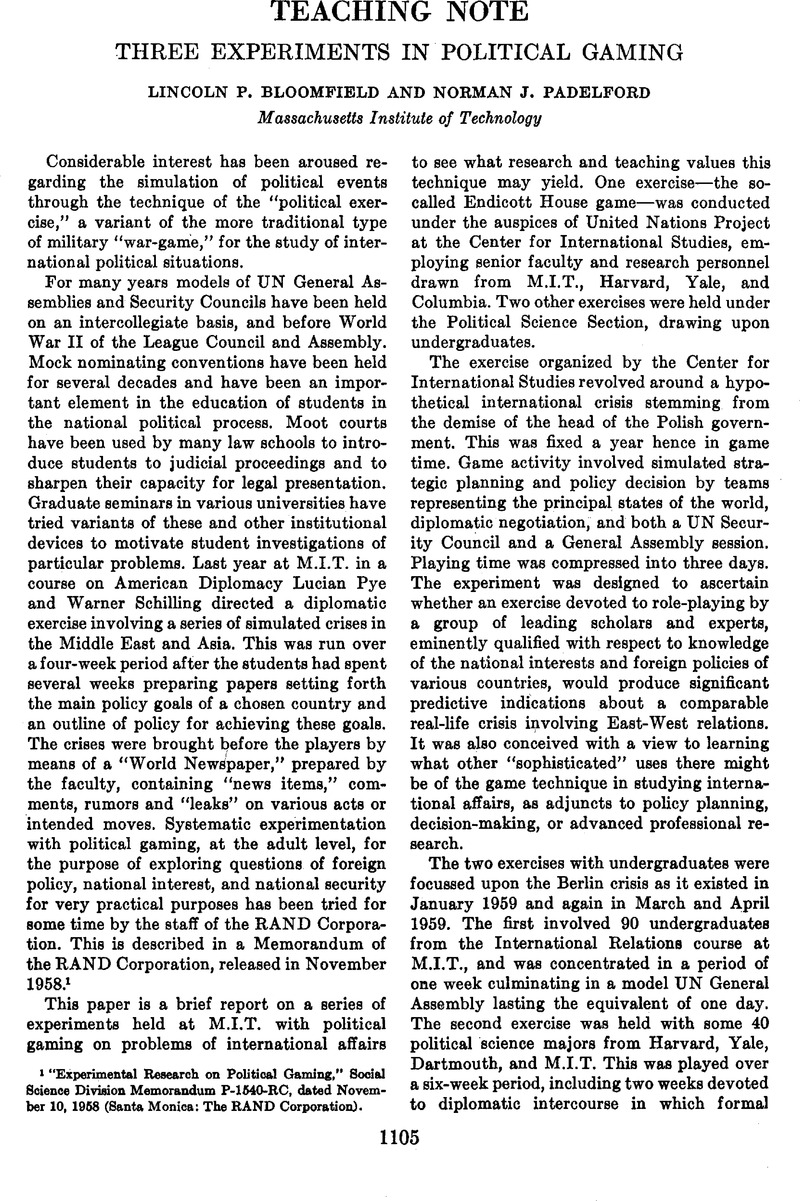Article contents
Three Experiments in Political Gaming
Published online by Cambridge University Press: 02 September 2013
Abstract

- Type
- Teaching Note
- Information
- Copyright
- Copyright © American Political Science Association 1959
References
1 “Experimental Research on Political Gaming,” Social Science Division Memorandum P-1640-RC, dated November 10, 1958 (Santa Monica: The RAND Corporation)Google Scholar.
2 At the Endicott House game, Paul Kecskemeti of the RAND Corporation, an authority on Central and Eastern Europe and on political gaming as well, served along with one of the authors as Umpire. His recognized knowledge on matters both of substance and procedure proved to be most helpful throughout this experiment, and particularly in the post-mortem at the close. In the first student exercise another senior member of the RAND staff, W. Phillips Davison, acted as Umpire along with Ithiel De Sola Pool of M.I.T. For the intercollegiate exercise, also on Berlin, the Institute was fortunate in securing John C. Campbell, Director of Political Studies at the Council on Foreign Relations in New York, and David E. Linebaugh, a Foreign Service Officer and formerly First Secretary of Embassy at Bonn, as additional Umpires. The presence of these authorities contributed greatly, in our judgment, to the seriousness with which the students applied themselves to the search for appropriate courses of action in the exercise.
Members of the faculties from each of the participating institutions functioned in the role of expert advisors to the various country teams in the student exercises, and were a distinctly helpful accompaniment on many occasions. To add additional distinction and expertise in the first student exercise Rupert Emerson of Harvard University acted as “President of the UN General Assembly.” At the Endicott House game Oscar Schachter of the United Nations Secretariat came to Cambridge to act as “UN Secretary General.”
3 For a more rigorously structured approach to political gaining, emphasizing methodology and drawing more on the mathematical theory of games, see Harold Guetzkow, “A Use of Simulation in the Study of International Relations” and also “Limits and Potentialities of Inter-Nation Relations through Complex Organizations,” Program of Graduate Training and Research in International Relations, Northwestern University (mimeo.).
- 41
- Cited by



Comments
No Comments have been published for this article.